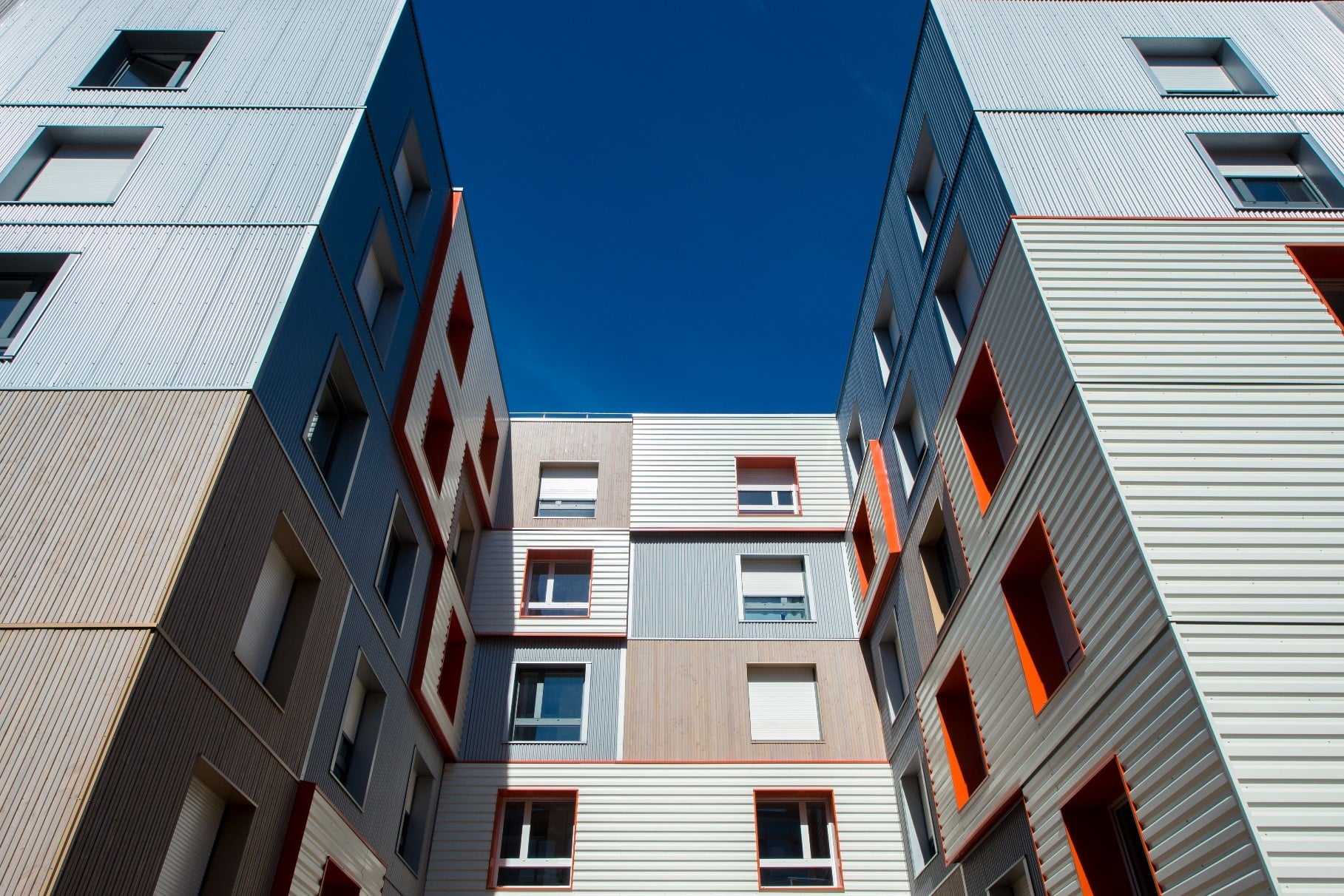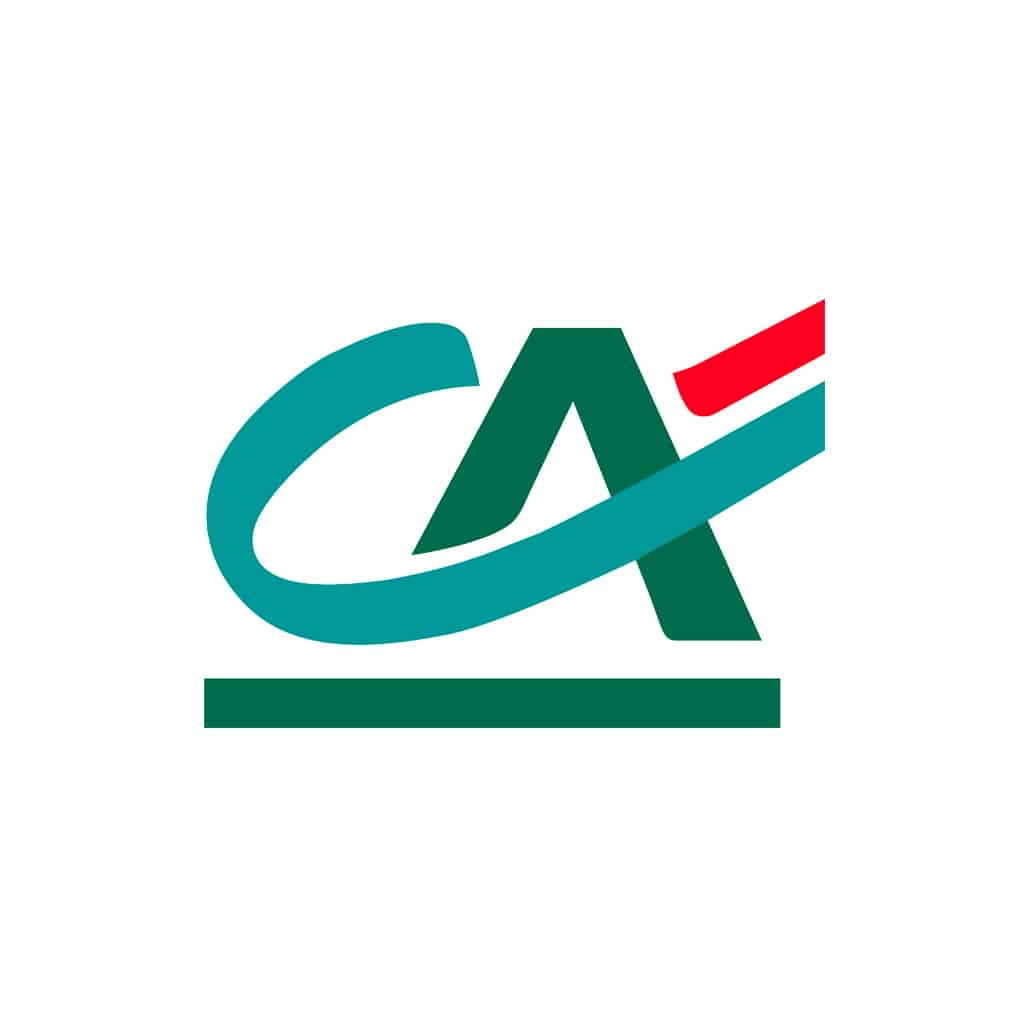
Construction of a low-carbon student hall of residence
The Clémence Royer student hall of residence built by Crédit Agricole Immobilier blends meeting the need for affordable rented accommodation with a strong environmental commitment to combating…

The main aim of LCL Carbon Offsetting funds is to reduce the volume of greenhouse gas emissions in their investments and offset their residual carbon footprints.
Two funds were created to meet different investment objectives through their investment strategies (share asset classes or diversified), with one world shares fund and one multi-strategy fund:
– LCL Carbon Offsetting World Shares (LCL Compensation Carbone Actions Monde)
– LCL Carbon Offsetting Multi-strategy (LCL Compensation Carbone Multi-Stratégie)
A feature of these funds is that they follow a two-stage approach to sustainability relative to carbon footprints:
To select those companies best placed to address climate change, the Carbon Offsetting Funds’ management teams use data from the Carbon Disclosure Project (CDP), the responsible investment methodology designed by CPR Asset Management (an Amundi subsidiary), and the Reprisk, Sustainalytics and MSCI ethical filters.
The investment universe comprises businesses that are most committed to an energy and environmental transition process, regardless of their industry. LCL believes that all economic stakeholders must act to reduce their greenhouse gas emissions and switch their energy mix to move towards decarbonisation of energy use.
Businesses need to demonstrate sound climate risk management to join this investment universe. The CDP allocates a grading between A and D (where A is for businesses demonstrating the best practices). The investment universe includes A and B grades.
Businesses with the poorest Environment, Social and Governance (ESG) stances and those involved in the most serious controversies are excluded.
These funds are actively managed in a universe with a reduced climate risk profile, the target being to reduce the funds’ carbon footprint by 20% to 30% in comparison with its investment universe.
All human activities generate the greenhouse gases responsible for climate change. The LCL Carbon Offsetting funds finance businesses committed to reducing their climate impact and offset their residual greenhouse gas emissions by acquiring carbon credits from two projects, namely Marajo and Cardamom.
The Marajo Forest project is located in the Amazon river delta, in the eastern part of the Amazon rainforest. As logging and transporting timber on the river are the two main sources of income for local communities and one of the principal causes of deforestation in the region, this project is helping combat Amazon deforestation by offering new economic activities to local populations (subsistence farming, creating nurseries to restore damaged areas of forest, and growing cupuaçu).
The Cardamom project is located in Cambodia, in the mountain range on the border with Thailand. The region has the second largest virgin tropical forest in south-east Asia, and is experiencing considerable pressure from illegal logging and poaching. This offsetting project is focused on the south of the region, and aims to preserve biodiversity and protect the habitat of many indigenous species.
Both projects have the VCS (Verified Carbon Standard) label, one of the strictest carbon offsetting certification labels recognised worldwide.
Each year, after calculating the fund’s carbon footprint, EcoAct offsets the volume of CO2 emissions emitted by the fund. As proof of the transfer of title in the carbon credits, EcoAct provides a carbon credits transfer certificate and an offset certificate, as evidence of, and attesting to, the carbon offsetting.
on which the project has a significant impact
Scopes 1, 2 et 3 – Financing of low-carbon producers, or divestment from carbon-emitting assets
Avoided emissions –Carbon offsetting: Cardamom / Marajo projects
A fin mai 2021:
Fund investment as at 30 May 2021: - LCL Compensation Carbone Actions Monde: €220m - LCL Compensation Carbone Multi-Stratégie: €144m
2020
France
This project mainly falls within the bounds of SDG 13 Urgent action to combat climate change.
In addition, carbon offsetting projects also contribute to the following SDGs:
SDG 15 – Life on land
Financial investors have a role to play in preserving the planet. Awareness of these issues in asset management enables a responsible stance to be adopted. Investors are seeking companies that are committed to reducing their carbon footprint. The number of companies making such commitments is gradually increasing.
The success of this range of funds is based on the rising general awareness (of governments, businesses and the public at large) of the need to contribute to climate neutrality.
A number of partnerships were formed through the launch of these two funds:
EcoAct – European leader in voluntary carbon offsetting, an Atos subsidiary.
Sylvie Vale, Marketing LCL Banque Privée sylvie.vale@lcl.fr

The Clémence Royer student hall of residence built by Crédit Agricole Immobilier blends meeting the need for affordable rented accommodation with a strong environmental commitment to combating…